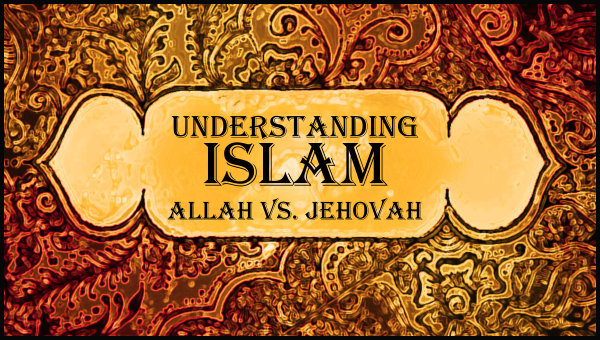By Tyson Thorne

Those who knew me then can tell you that I was very vocal about my faith in High School. Out of all that came from being so up front there is one occasion that still stands out in my mind as terribly important. After school I was talking to my chemistry teacher. On this occasion he said to me that he was a Christian but that he believed God used evolution to create the variety of life we observe on our planet.
“So you believe in a God that created a world where survival of the fittest is the rule and death helps weed out the weak.” I reasoned. “I believe in a God that created a world without death and where we were given charge by a loving God to tend the planet. It sounds to me like we worship two different Gods.”
Anyone can say that they worship God, the question is “what do they mean by God?” Many politicians, journalists and others lump Judaism, Christianity and Islam together believing that all three worship the same God, but they couldn’t be further from the truth. While it is true that Christianity shares its roots with Judaism and claims the Jewish holy writings to be a part of their own and that Christianity is really a Messianic outgrowth of Judaism, no such connections can be made between Islam and Judaism or Islam and Christianity. The attributes of God, his character and nature, are agreed upon by both Jews and Christians but differ in Islam – a point I intend to prove next.
According to Islam, Judaism and Christianity, “the Lord our God, the Lord is one” (Deuteronomy 6.4). It seems simple enough on the surface, but even in the simple word “one” there are different definitions and opinions.
For example, in Islam the doctrine of Tauheed teaches Allah’s absolute unity of self-reliance. He is one in matter and one in person. Christianity believes in Trinity, one in matter and three persons. Judaism is somewhere in-between, believing in the same one in matter but uncertain in personhood due to difficult passages like Genesis 1.26, “Let us make man in our image, after our likeness…” (emphasis mine).
Another point of distinction is in the doctrine of Omnipotence. Islam teaches that due to Allah being all-powerful there isn’t anything that he cannot do, which includes deceit and treachery. This is why he must be feared. Judaism and Christianity teach being all-powerful does not include the ability to violate God’s other attributes, namely his righteousness. Jehovah cannot lie or deceive because doing so would violate his righteous nature.
Which brings us to the doctrine of Hamartiology, which is the doctrine of sin. To Allah some sin is permissible, but to Jehovah all sin is punishable by eternal damnation. In Islam one need avoid only the grossest sin to avoid offending Allah. By contrast, the Bible teaches that “For the one who obeys the whole law but fails in one point has become guilty of all of it” (James 2.10).
As we’ve seen already in our brief on the Quran, the doctrine of Inspiration is also different. The Quran is deemed the Word of God as it was dictated to Mohammad, whereas in Christianity Jesus is the Word of God made flesh. Due to the Tauheed Jesus cannot be God and is therefore seen as a prophet and not a savior.
The differences continue but we do not have time here to list them all. This list should be sufficient, however, to prove to the reader that Allah and Jehovah are not one and the same. In fact, the characteristics of Allah make him more closely akin to Lucifer than to the God of the Bible.
Click here for next article in the series.
|
|